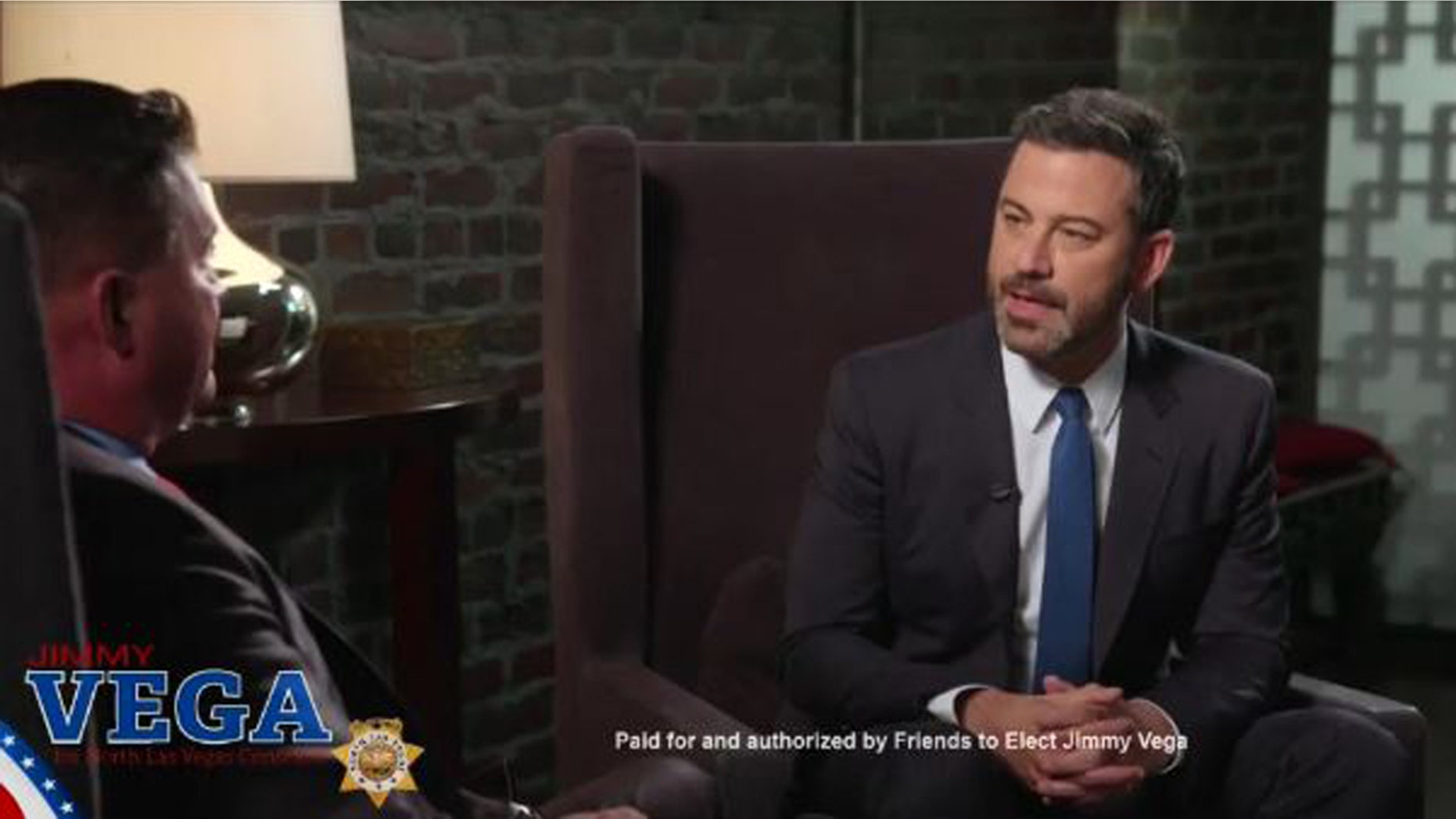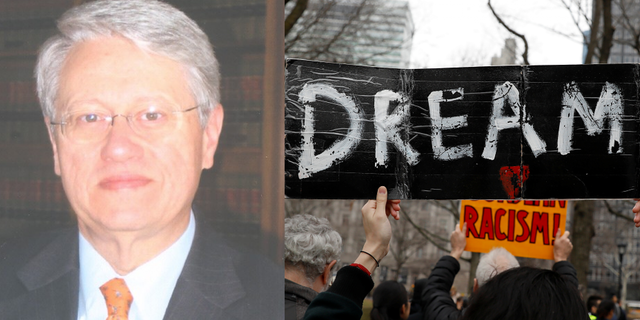With three weeks to go in what should be a strong midterm election for them, here's what the Democrats don't need:
Hillary Clinton justifying her husband's sexual affair with a White House intern because she was over 21.
Elizabeth Warren doing a DNA test that shows she has a minuscule fraction of Native American ancestry and getting denounced by the Cherokee Nation.
Heidi Heitkamp having to apologize for putting out a letter naming sexual assault victims without their permission.
These are, to put it mildly, all self-inflicted wounds.
The plain fact is that there's only so much media oxygen out there in an election that Donald Trump has clearly nationalized. When one of the name-brand Democrats steps in it, the media pile on, and that means the party's message is obscured — especially important with less than three weeks until the election.
Of course, some GOP candidates have screwed up as well. And Trump drew enormous criticism yesterday for tweeting, after a federal judge tossed Stormy Daniels' defamation suit against him, "Great. Now I can go after Horseface and her 3rd rate lawyer," White House wannabe Michael Avenatti.
This of course reminded Trump critics of a series of comments about women's faces, and why go there after winning the lawsuit? While it created a media storm, voters have already made up their minds about the president's penchant for personal insults. And he's got the huge megaphone, which he is using, on many other issues.
That's not true of the Democrats, who seem to lack a unified message other than Trump is awful so we should take over the House. It's always a challenge for a minority party without a national leader and in this case, a zillion people positioning themselves to run in 2020. But that underscores why these ancillary controversies are a wasted opportunity.
Clinton drew flak for her comments about Monica Lewinsky in a "CBS Sunday Morning" interview. She said, not surprisingly, that her husband should not have resigned two decades ago, when he was being impeached, and that she's only responsible for her own behavior.
But when correspondent Tony Dokoupil said Bill couldn't possibly have had a consensual relationship with Lewinsky because of the huge power imbalance, Hillary retreated to saying "she was an adult." That angered many in the #Me-Too movement and made her sound tone-deaf.
Come on. Lewinsky was a very young woman in an extramarital relationship with the most powerful man on the planet. You might think, after all this time, that Clinton would have crafted a better answer.
Warren, obviously stung by Trump's "Pocahontas" attacks, completely botched her rollout of DNA evidence purporting to show she did have a distant Native American ancestor. All you need to know is that the Cherokee Nation's secretary of state said:
"It makes a mockery out of DNA tests and its legitimate uses while also dishonoring legitimate tribal governments and their citizens, whose ancestors are well documented and whose heritage is proven. Senator Warren is undermining tribal interests with her continued claims of tribal heritage."
How could she not have sounded out the group first?
The Boston Globe has issued two corrections on the story. The first one said that under the test Warren "would be 1/1024 Native American, not 1/512."
The second said that the senator had "misstated the ancestry percentage of a potential 6th to 10th-generation relative." Ouch.
I understand that Warren wanted to put the Native American controversy behind her and send a clear smoke signal that she's running for president. But while the ensuing back and forth with Trump might help her, it does nothing for her fellow Democrats who are up in November.
One of those is Heitkamp, who is running about 10 points behind Republican Kevin Cramer in the North Dakota Senate race. She made an extraordinary blunder in issuing an open letter to him that was published in several newspapers.
That letter named some sexual assault survivors who say they are not victims of assault, and others, expressing their outrage on Facebook, who say they never gave permission to be publicly identified.
The senator said in a statement: "I deeply regret this mistake and we are in the process of issuing a retraction, personally apologizing to each of the people impacted by this and taking the necessary steps to ensure this never happens again."
That was political malpractice by Heitkamp's campaign that obviously hurts her candidacy, but also achieved story-of-the-day status that drew attention from other Democrats.
None of these mistakes was dreamed up by a hostile conservative media, and have actually drawn sharp criticism from liberal pundits. Together they amount to an unintended gift to the GOP.
Hillary Clinton justifying her husband's sexual affair with a White House intern because she was over 21.
Elizabeth Warren doing a DNA test that shows she has a minuscule fraction of Native American ancestry and getting denounced by the Cherokee Nation.
Heidi Heitkamp having to apologize for putting out a letter naming sexual assault victims without their permission.
These are, to put it mildly, all self-inflicted wounds.
The plain fact is that there's only so much media oxygen out there in an election that Donald Trump has clearly nationalized. When one of the name-brand Democrats steps in it, the media pile on, and that means the party's message is obscured — especially important with less than three weeks until the election.
Of course, some GOP candidates have screwed up as well. And Trump drew enormous criticism yesterday for tweeting, after a federal judge tossed Stormy Daniels' defamation suit against him, "Great. Now I can go after Horseface and her 3rd rate lawyer," White House wannabe Michael Avenatti.
This of course reminded Trump critics of a series of comments about women's faces, and why go there after winning the lawsuit? While it created a media storm, voters have already made up their minds about the president's penchant for personal insults. And he's got the huge megaphone, which he is using, on many other issues.
That's not true of the Democrats, who seem to lack a unified message other than Trump is awful so we should take over the House. It's always a challenge for a minority party without a national leader and in this case, a zillion people positioning themselves to run in 2020. But that underscores why these ancillary controversies are a wasted opportunity.
Clinton drew flak for her comments about Monica Lewinsky in a "CBS Sunday Morning" interview. She said, not surprisingly, that her husband should not have resigned two decades ago, when he was being impeached, and that she's only responsible for her own behavior.
But when correspondent Tony Dokoupil said Bill couldn't possibly have had a consensual relationship with Lewinsky because of the huge power imbalance, Hillary retreated to saying "she was an adult." That angered many in the #Me-Too movement and made her sound tone-deaf.
Come on. Lewinsky was a very young woman in an extramarital relationship with the most powerful man on the planet. You might think, after all this time, that Clinton would have crafted a better answer.
Warren, obviously stung by Trump's "Pocahontas" attacks, completely botched her rollout of DNA evidence purporting to show she did have a distant Native American ancestor. All you need to know is that the Cherokee Nation's secretary of state said:
"It makes a mockery out of DNA tests and its legitimate uses while also dishonoring legitimate tribal governments and their citizens, whose ancestors are well documented and whose heritage is proven. Senator Warren is undermining tribal interests with her continued claims of tribal heritage."
How could she not have sounded out the group first?
The Boston Globe has issued two corrections on the story. The first one said that under the test Warren "would be 1/1024 Native American, not 1/512."
The second said that the senator had "misstated the ancestry percentage of a potential 6th to 10th-generation relative." Ouch.
I understand that Warren wanted to put the Native American controversy behind her and send a clear smoke signal that she's running for president. But while the ensuing back and forth with Trump might help her, it does nothing for her fellow Democrats who are up in November.
One of those is Heitkamp, who is running about 10 points behind Republican Kevin Cramer in the North Dakota Senate race. She made an extraordinary blunder in issuing an open letter to him that was published in several newspapers.
That letter named some sexual assault survivors who say they are not victims of assault, and others, expressing their outrage on Facebook, who say they never gave permission to be publicly identified.
The senator said in a statement: "I deeply regret this mistake and we are in the process of issuing a retraction, personally apologizing to each of the people impacted by this and taking the necessary steps to ensure this never happens again."
That was political malpractice by Heitkamp's campaign that obviously hurts her candidacy, but also achieved story-of-the-day status that drew attention from other Democrats.
None of these mistakes was dreamed up by a hostile conservative media, and have actually drawn sharp criticism from liberal pundits. Together they amount to an unintended gift to the GOP.





















